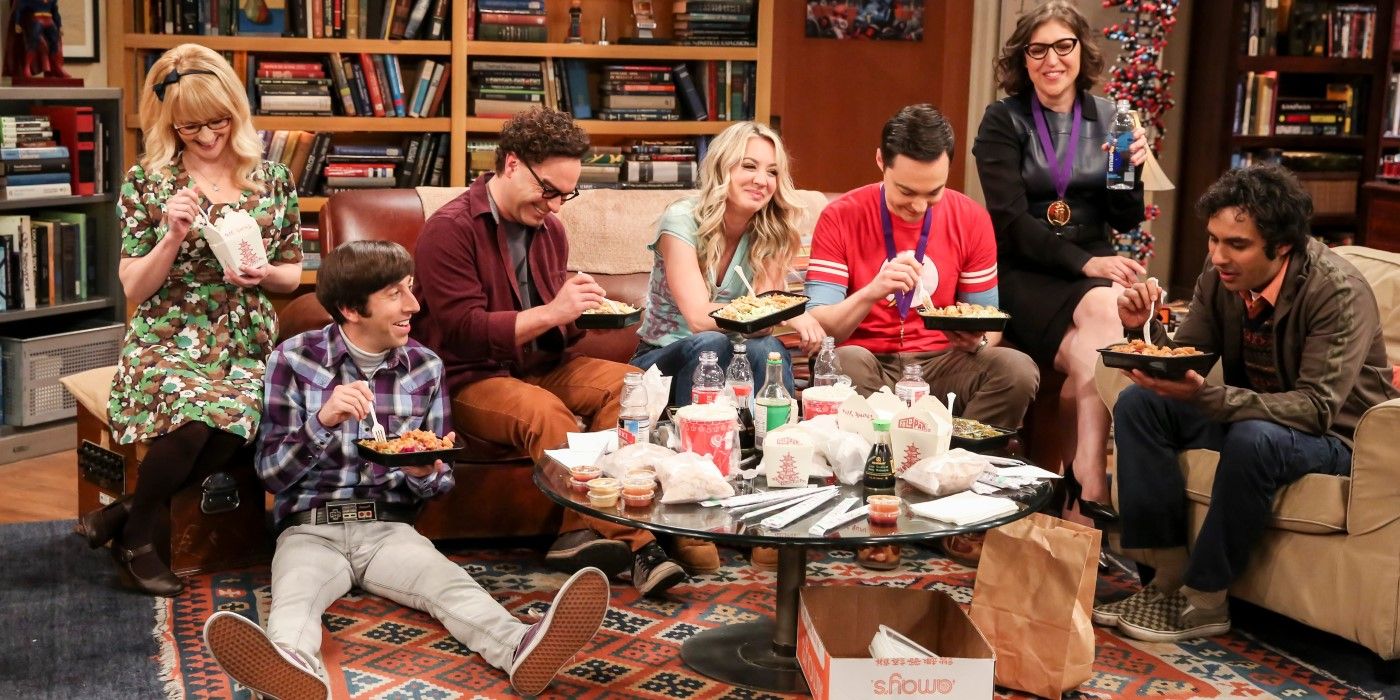The Big Picture
- China is a massive market for foreign TV shows, but access to the Chinese market comes with restrictions, and shows that portray China negatively can be banned outright.
- The Big Bang Theory was banned in China in 2014, with speculation that the ban was an attempt to limit the influence of the West and prevent “losers” from becoming trendy.
- The ban on The Big Bang Theory was eventually lifted in 2015 due to a massive outcry from Chinese fans, but the government tightened its grip on foreign content and required full seasons to be reviewed before airing.
To say China is a desirable market for foreign television shows, like The Big Bang Theory, is an understatement of grand proportions. Subtitled episodes of Downton Abbey are watched by 160 million viewers. China’s Got Talent, has seen as many as 400 million viewers an episode. In a 2014 article in The Guardian, Pierre Cheung, BBC Worldwide’s vice-president of greater China, said, “In the UK a top-rated TV show may just get into double-digit millions [in audience size], but China has 1.4 billion people and gets easily double, triple or quadruple that. The market is a massive opportunity.” Access to the Chinese market, though, comes with a price, as only content that has been deemed acceptable for the Chinese public is allowed to be broadcast in the country. In other words, anything that suggests China is anything less than positive, and/or negatively impacts Chinese society, runs the risk of being altered or banned outright. You might not think The Big Bang Theory has anything in it that would warrant a Chinese ban, but in 2014, that’s exactly what happened.
‘The Big Bang Theory’ Glorified Nerd Culture
The Chinese love American TV series, with shows like Prison Break, Agents of S.H.I.E.L.D., and Friends among the most popular (one Chinese sitcom, Ipartment, was even accused of ripping off Friends and other American comedies). But Chinese fans flat-out loved The Big Bang Theory, with the show consistently outperforming its peers by reaching upwards of 1.3 billion views. The show, and other American programs, enjoyed the access provided by Chinese online video providers, who, surprisingly, were allowed to negotiate content deals with rights holders globally without shows needing official approval for broadcast. That changed in April 2014 when the Chinese government’s media watchdog, the State Administration of Press, Publication, Radio, Film and Television (SARFT), suddenly banned The Big Bang Theory, The Good Wife, NCIS, and The Practice, pulling the episodes from streaming sites like Sohu TV, iQiyi, and Youku. SARFT vaguely explained the rationale for the move by stating that the shows were “either out of copyright or violated clause 16 of the rules of online broadcasting, a clause that prohibits pornography, violence, and ‘content that violates China’s constitution, endangers the country’s sovereignty and territorial integrity, provokes trouble in society, promotes illegal religion, and triggers ethnic hatred.'”
The lack of a definitive answer led to speculation as to the reason why the shows were banned. Many saw the move as an attempt to limit the influence of the West in China, which certainly is plausible. As for The Big Bang Theory ban specifically, people claimed the Chinese government didn’t want nerds and geeks (or “losers”) to become trendy. While this theory about the show might seem absurd, there may actually be some logic to it. A 2013 survey conducted by Sohu found that over 80 percent of those surveyed, between the ages of 24 and 34, identified themselves as “diaosi,” a term for poor, girlfriend-less geeks that roughly translates as “loser.” That percentage is even higher among Chinese college students, who make up the largest audience for The Big Bang Theory, at a whopping 90 percent. The once-derided term became embraced, giving those who failed by larger social conditions in the country an identity they could rally around. So while The Big Bang Theory may not truly be controversial, there is no denying that the characters in the show would resonate strongly with the diaosi.
A Massive Outcry Brought ‘The Big Bang Theory’ Back to China
For the Chinese fans of a show like The Big Bang Theory, where Sheldon (Jim Parsons) once hacked into the Oak Ridge National Laboratory’s Cray supercomputer simply to analyze shuffling patterns for cards in an effort to understand Howard’s (Simon Helberg) magic trick, finding alternate ways to watch their favorite program, off torrent sites or on Baidu’s cloud service, wasn’t difficult. Combined with a massive backlash from the Chinese people, the ban was lifted in 2015. (More or less.) Prior to the ban, streaming sites had a much longer leash than the country’s television providers, as long as the most lewd and violent content was censored. Now, SARFT decreed that full seasons of foreign shows have to be submitted to be reviewed before they are allowed to air. It allowed the government to tighten its grip on foreign content, which is far more popular than the state’s sanitized soap operas and mundane dramas about the Communist Revolution while silencing the outcry for the content from its people. This meant that Season 8 of The Big Bang Theory, which wrapped up in May 2015, wasn’t aired in China until July, after censors approved all 24 episodes.
As totalitarian as the rules may be, both the country’s streaming sites and Hollywood’s TV and film industries have little choice but to adhere to the censorship. The only alternative to getting content to Chinese viewers is via piracy, so being paid for “legal” content (Charles Zhang, chief executive of Sohu, pegged the amount at $100 million alone in 2014) is far more welcome than receiving nothing from piracy. As far as the Chinese public is concerned, though, even a censored The Big Bang Theory is better than none at all, with the show top among all American TV shows as recently as 2020. Yet to some degree, it has to be considered a win for the diaosi, undermining the Chinese governing media body into allowing The Big Bang Theory back on Chinese screens, forcing a compromise of sorts to save face. Diaosi of the world, unite.





